IT is often said, “we are what we eat”. The nutritional value of the foods we consume are very important and directly affect our health and wellbeing. This in turn affects our productivity and contributions to life, the environment, society and development. Food production can be viewed as a cyclical process where the earth provides food cultivated by humans, and we as humans add back to the environment in various ways. Our practices can affect the environmental output and this in turn can also affect our lives and safety. It is very important that we treat our environment with respect and nurture it in order to get the food needed for our survival.
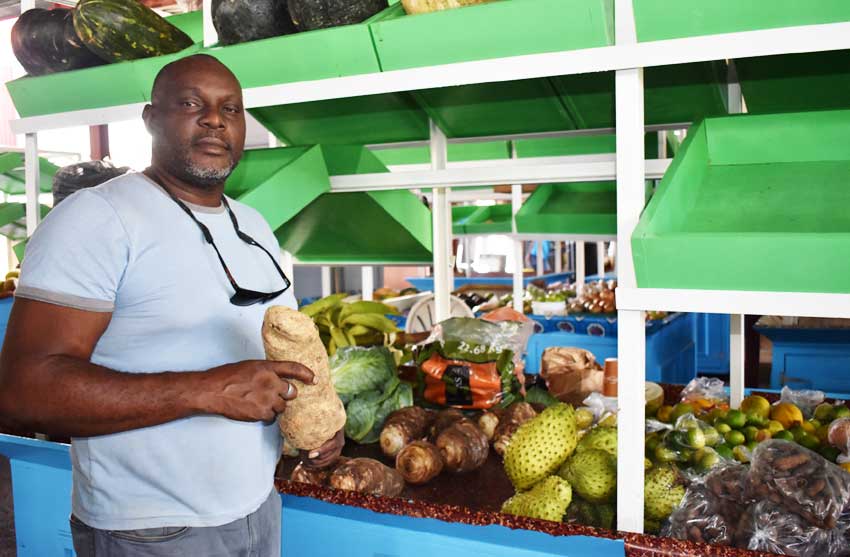
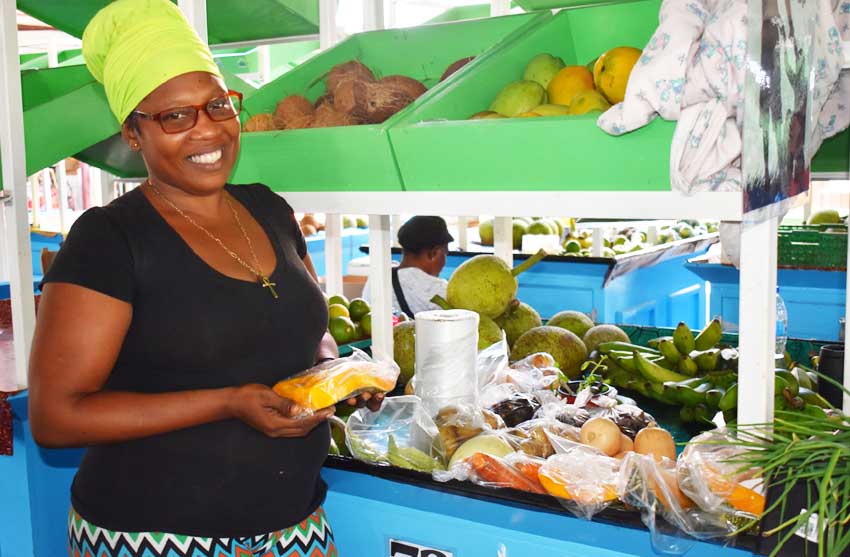
A sustainable livelihood can be a habit in our daily practices if we choose to make it. With the presence of the Covid-19 pandemic, more and more persons are resorting to backyard gardens. This allows us to grow our own food which indeed nourishes our bodies and ensures our survival. The selection of what to grow in the garden is vital towards obtaining a balanced meal. Root crops like sweet potato and cassava, provide healthy options of carbohydrates, and legumes like pigeon peas provide an excellent protein source. Another option can be chickens or even small ruminants like goats or sheep. Short term vegetables like cabbage, tomato, bell pepper, lettuce, watermelon and cantaloupe all provide vitamins and minerals. Additionally, fruit trees though seasonal, contribute important nutrients and require little inputs for growth. A combination of these commodities can allow sustainability, food security and healthier populations as we utilise our given land spaces. Container/pot gardens are also another option for persons without available land space. We, as a nation, can do our part to promote zero hunger under the sustainable development goals and reduce the imports of food significantly. There is also a special feeling when we are able to grow what we eat and even share our harvest with our neighbours.
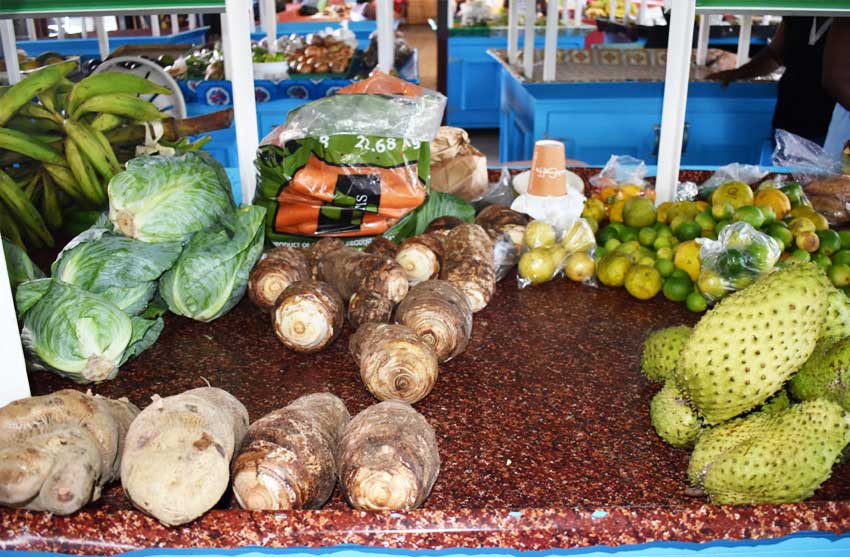
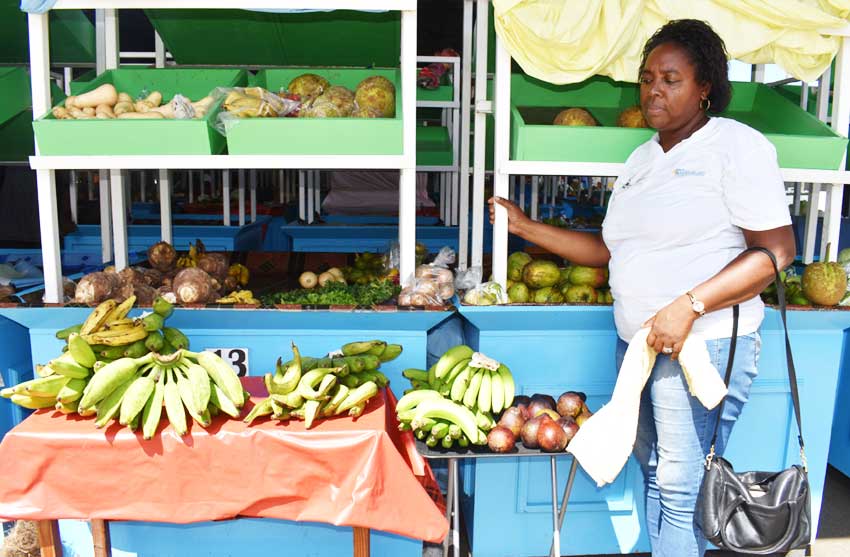
The reward of developing a healthy consumption practice through growing of our own food is indeed invaluable. It also ensures that in a natural disaster whether it is a hurricane or a global pandemic, food is available in every community thereby fostering self-reliance. This can also provide stress relief, therapy, relaxation and even a source of income under strained conditions. The overall benefit of producing our own food whether small or large scale is formidable and creates a balanced individual at all levels- mind, body and spirit. When we are selecting what to plant a few useful guides can be:
- Plant crops that can sustain extreme rainfall and strong winds ( Example cassava, sweet potato)
- Plant crops or rear animals that require low inputs giving consideration to your budget
- Plant crops that can give you, your families and your neighbors all of the necessary nutrients for growth and healthy bodies
- Plant a mixture of short and long term crops providing the opportunity for economic value as well as food for your family
- Consider availability of water, and have a plan to feed your crops as they too require nurture and care in order to give you returns
- Consider your soil types and the presence of pest and diseases and use available resources to guide you
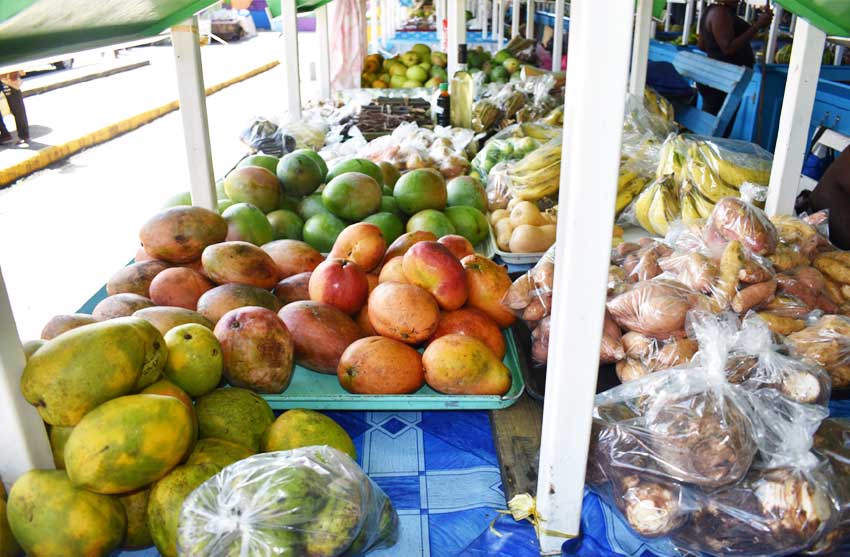
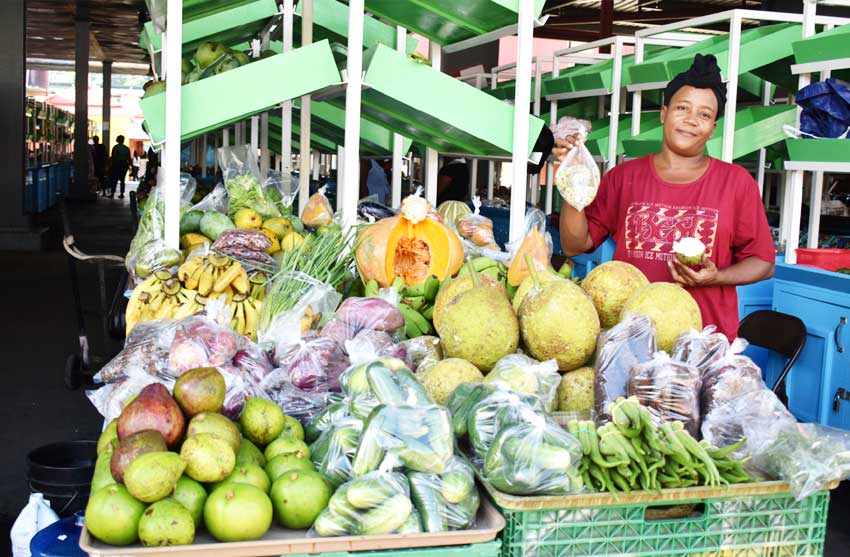
These guides can allow for an adequate supply of food and should be a normal part of our lives whether there are extreme circumstances or not. It should be a desire to want to sustain our livelihoods, communities and country. Let us not forget the richness of our soils here in Saint Lucia, but instead capitalize on the resources present and actively contribute to reducing hunger as we ‘Grow, Nourish, Sustain. Together our Actions Affect the Future’.




![Simón Bolívar - Liberator of the Americas [Photo credit: Venezuelan Embassy]](https://thevoiceslu.com/wp-content/uploads/2025/12/Simon-Bolivar-feat-2-380x250.jpg)



